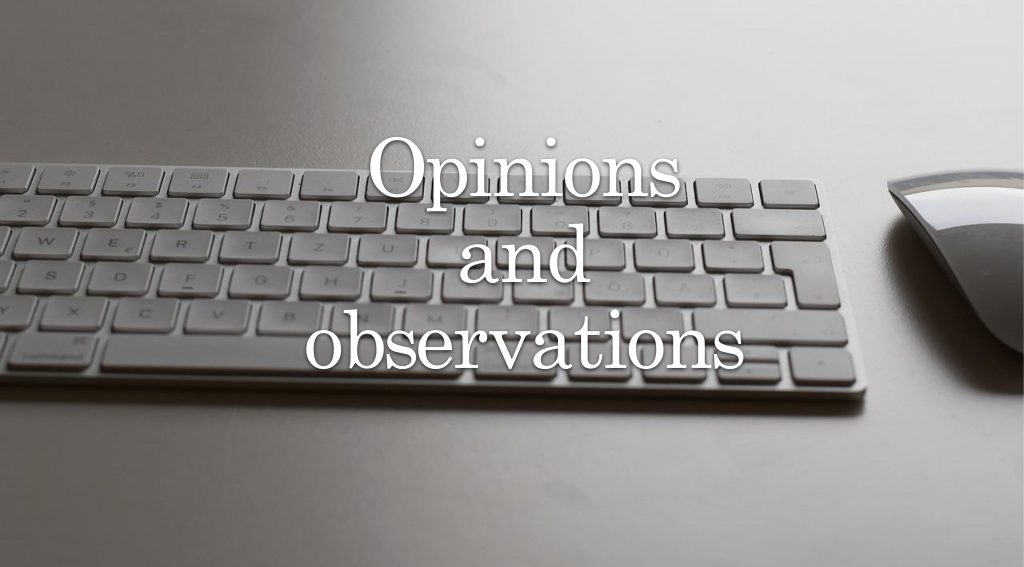A commentary from Lewis S. Blevins Jr. M.D., PWN Co-founder – In my opinion, those of us who “profess” to be academics and champions of, as Robert Graham the designer includes on his apparel, “knowledge wisdom and truth,” are occasionally just as guilty as are the hucksters that we complain about who practice alternative or functional medicine based on pseudoscience and preposterous notions and ideas about endocrine pathophysiology. Why do I feel this way? I’m in the process of preparing a counterpoint to a published article. The article has been shared across social media with patient groups. It has been suggested that it’s used for marketing purposes. It’s really not good science. Conclusions are drawn in an unscientific manner. I’ll be commenting on these opinions soon. The journal is, in my opinion, one of a lower tier. In fact, I’d never heard of it until I reviewed the published article. I suspect the results and data were not sufficient to justify publication in a mainstream journal but I do not know for sure. It’s just a hunch. I’m bothered by several things that come to mind related to this manuscript and its “impact” on patients. Unfortunately, it doesn’t really matter how inferior a manuscript and the findings it relates might be. It can and will be published somewhere and then it’s a matter of record as far as many are concerned.
Most patients will accept these reports as the “gospel truth” and it becomes difficult to persuade them of another viewpoint. Some may be harmed by encouraging similar treatments from their doctors. Physicians may try to replicate treatments that are beyond their skill sets and then harm patients. Wouldn’t it be a responsible approach to, if a manuscript is deemed unacceptable for publication in a top-tier journal and the criticisms are valid, just…. stop? Don’t publish. Not yet anyway. Conduct additional studies in an attempt to make the report more relevant and valid.
The pressures to publish have certainly led to the desire and behavior to publish somewhere just to publish and move on to the next project. Academic credit! Publish or perish! Surprisingly, academics, just like pseudoscientists they oft despise, firmly hold and believe the validity of their findings and conclusions and even in the setting of widespread criticisms that seriously question the reported findings. I suspect that I’ve been party to this irrational approach at some point in my career as I have certainly published in lesser journals. Guilty. I’ll cease and desist moving forward. The truth of the matter is that we have a responsibility to strive for “knowledge, wisdom, and truth” in order to safeguard the public.
Further, in the interests of contributing soundly to the amazing wealth of knowledge regarding normal physiology, the pathophysiology of the disease, diagnosis, and treatment we must ensure that our reports are of a rigorous nature so that the repository of information pertaining to “medicine” remains sacred. Ok. So I’m a romantic about our profession. Roll your eyes. Laugh. In all, we must refrain from publishing results that are circumspect, and, most importantly, we shouldn’t promote our results to patient groups unless we are confident that they have passed the most rigorous reviews by the top-tiered peer-reviewed journals that are usually, but not always, associated with respected societies. To do otherwise is, in my opinion, next to participating on the fringes of acceptable medical practice just like those practitioners that frustrate us on a daily basis. Perhaps, however, this fringe is where major advances in medicine are rooted. Remember, though, at one point in time frontal lobotomy was considered a miracle cure for mental illness. Just because something is possible doesn’t necessarily mean it’s a step forward and the right thing to do in the practice of medicine. Do you really want to leave a mark or legacy in some way? Go paint a painting. The odds of it being on a wall somewhere one hundred years from now are far greater than someone reading the manuscript a century from now that you will publish later this year.
© 2022 – 2024, J D Faccinetti. All rights reserved.
